Want the best of VICE News straight to your inbox? Sign up here.
HONG KONG — On Sunday police fired their first live round into the air since Hong Kong's protests erupted 11 weeks ago, marking a grim milestone in the city's fight against a proposed extradition bill that’s turned into a broader pro-democracy movement. It was a day of violent firsts here: police also launched water cannons against protestors, a first in the city's history.
Protestors, meanwhile, did little to cool tensions, hurling bricks and petrol bombs during two days of demonstrations. In response, the police labeled them “rioters” and warned that their actions had “overstepped the bottom line of a civilized society.”
It was a far cry from the relative peace and harmony on display Friday, when an estimated 135,000 protesters joined hands across almost 40 miles of the city to form the “Hong Kong Way.”
Instead, both sides appear to expect only more violence in the coming weeks. The police show little indication of abandoning their violent crowd-control methods, and protesters insist they’re not backing down. If anything, they appear to be preparing for a drawn-out battle.
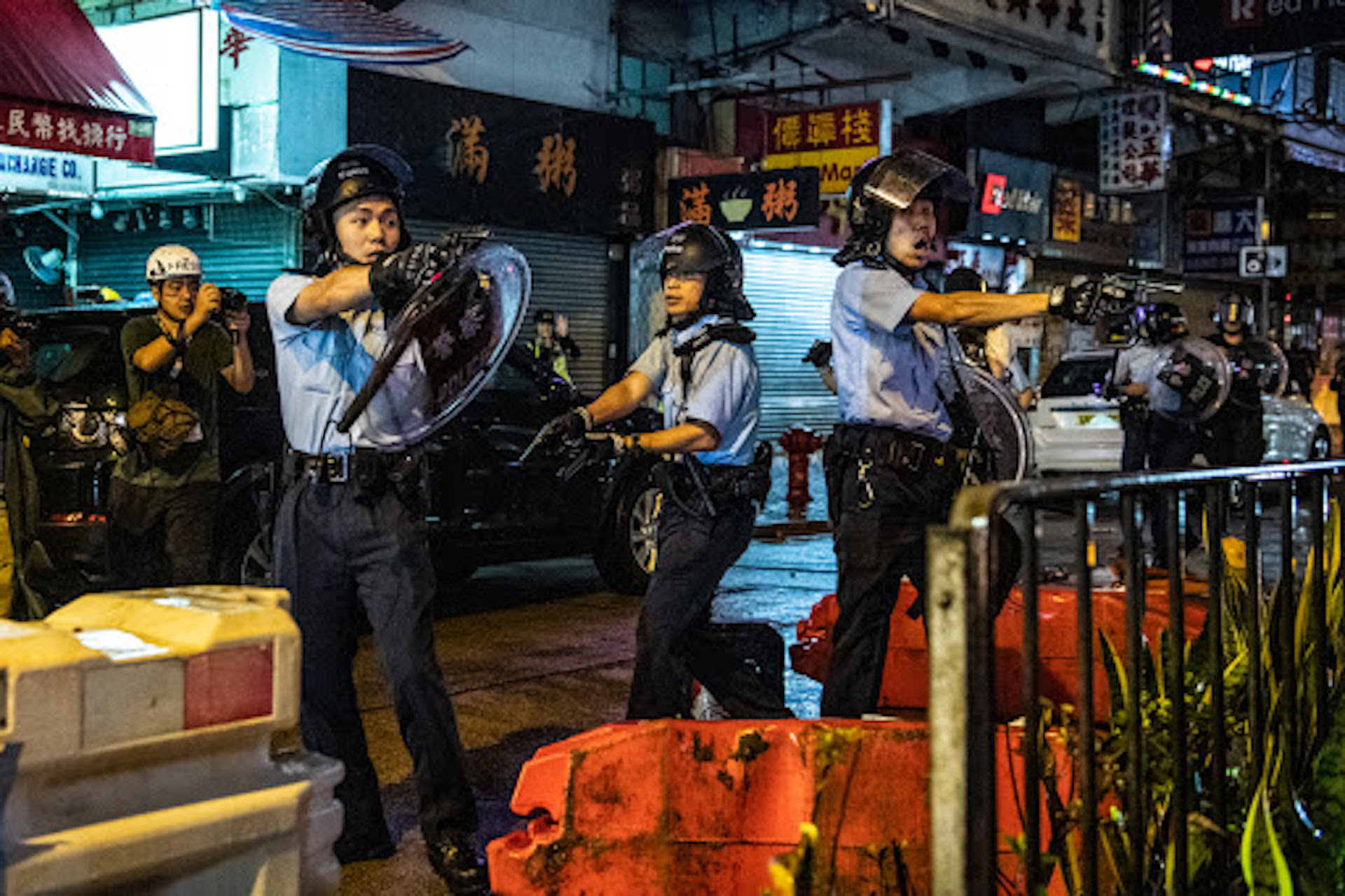
“I think [the violence] will only get worse, but of course this is from both sides: one hand can’t clap alone, right?” said Tom, a 24-year-old college student who asked to withhold his last name to avoid being identified by the police. “The government isn’t willing to respond to our demands, so we will keep going.”
Spray-painted graffiti that appeared on bridges and buildings throughout the city this weekend, only bolstered the protesters’ willingness to fight on, with phrases like “Free HK or WW3” and “If Hong Kong burns, the world burns.”
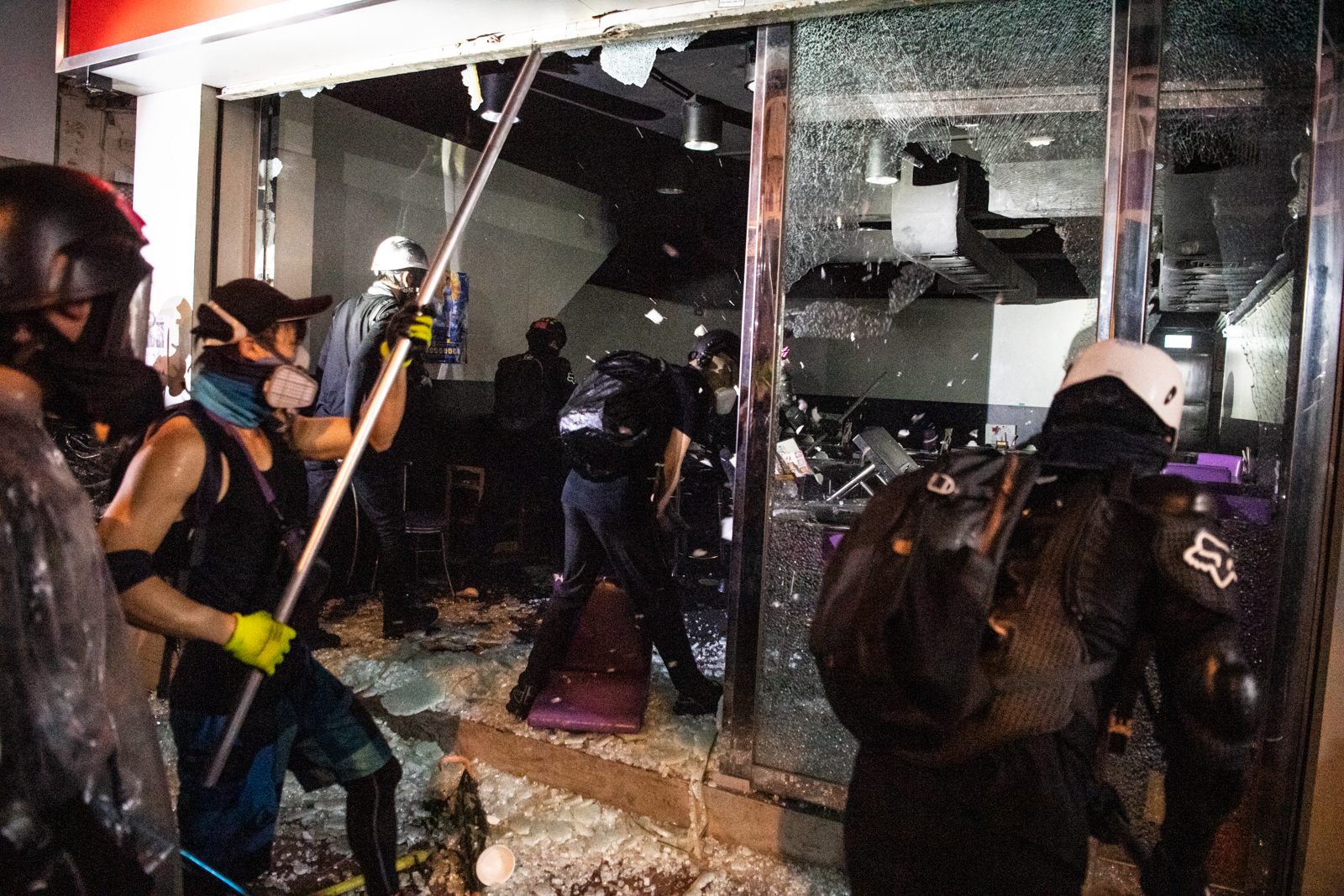
Some observers have predicted that the protests will calm down once young people have to go back to school, but Tom doesn’t think so. “Personally I think the protests will go on until at least October or November. On my campus, my classmates are already preparing to go on strike.”
At a press conference in the early hours of Monday, Senior Superintendent Yolanda Yu of the Police Public Relations Branch sought to blame the weekend’s chaos on protesters, playing a video of protesters attacking a police van with sticks and another showing protesters chasing and beating police, who then fired a warning shot.
“At that point, our officer’s lives were certainly in great danger,” the spokesperson said, explaining the warning shot was “necessary and reasonable.
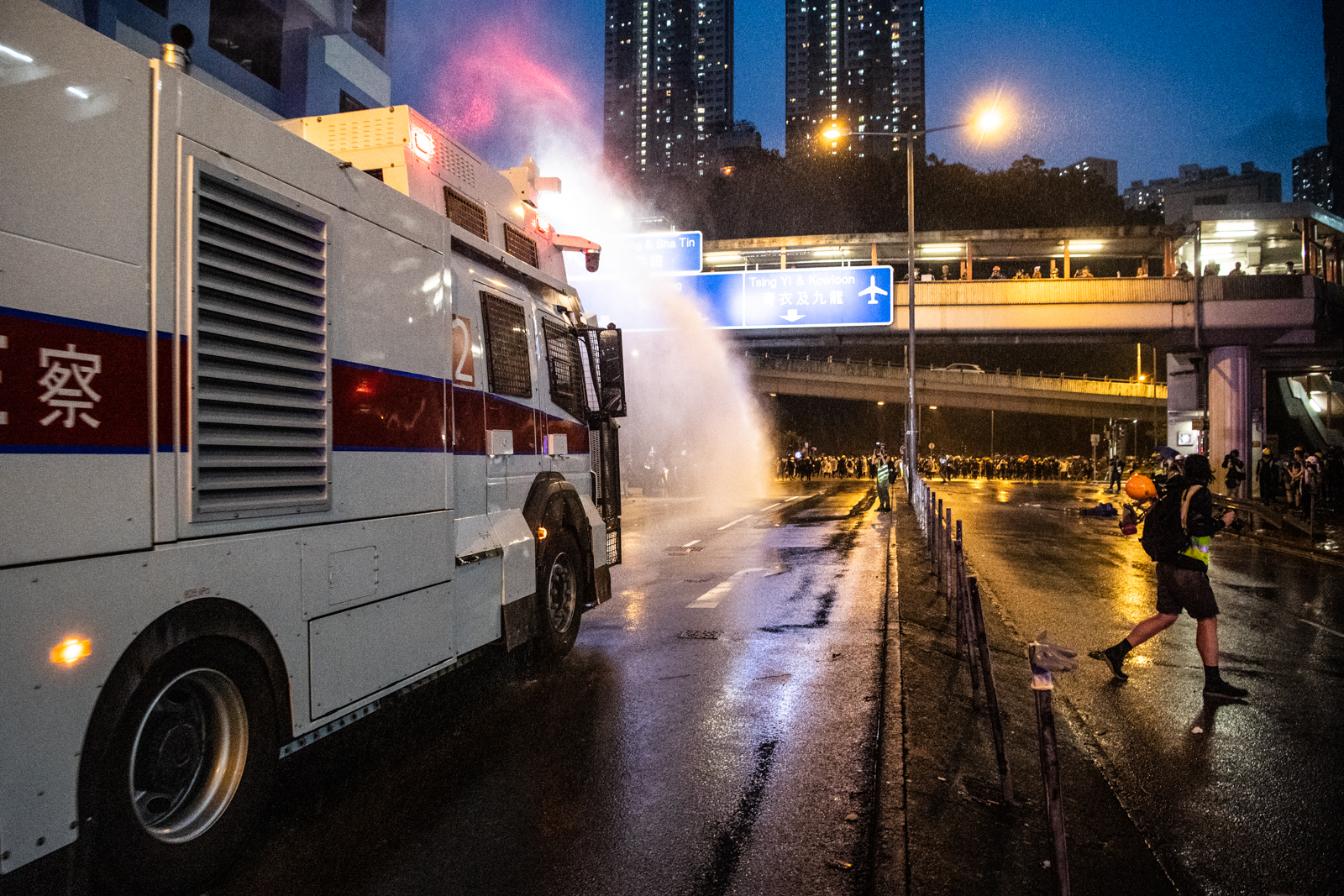
In explaining the use of the water cannon trucks, Yu said that despite repeated warnings to the “radical protesters,” the police “had no choice but to use the minimum force necessary to disperse them.” Protesters have indeed been violent, in several cases beating isolated police officers or breaking into establishments they believe to be owned by triads, Hong Kong’s organized crime syndicates.
But the Hong Kong Police Force have been criticized repeatedly by the international community, with the U.N. Human Rights Office saying it had reviewed “credible evidence of law enforcement officials employing less-lethal weapons in ways that are prohibited by international norms and standards”.
A total of 86 protesters were arrested, the youngest only 12 years old, and 15 police officers were sent to the hospital to receive treatment for injuries.
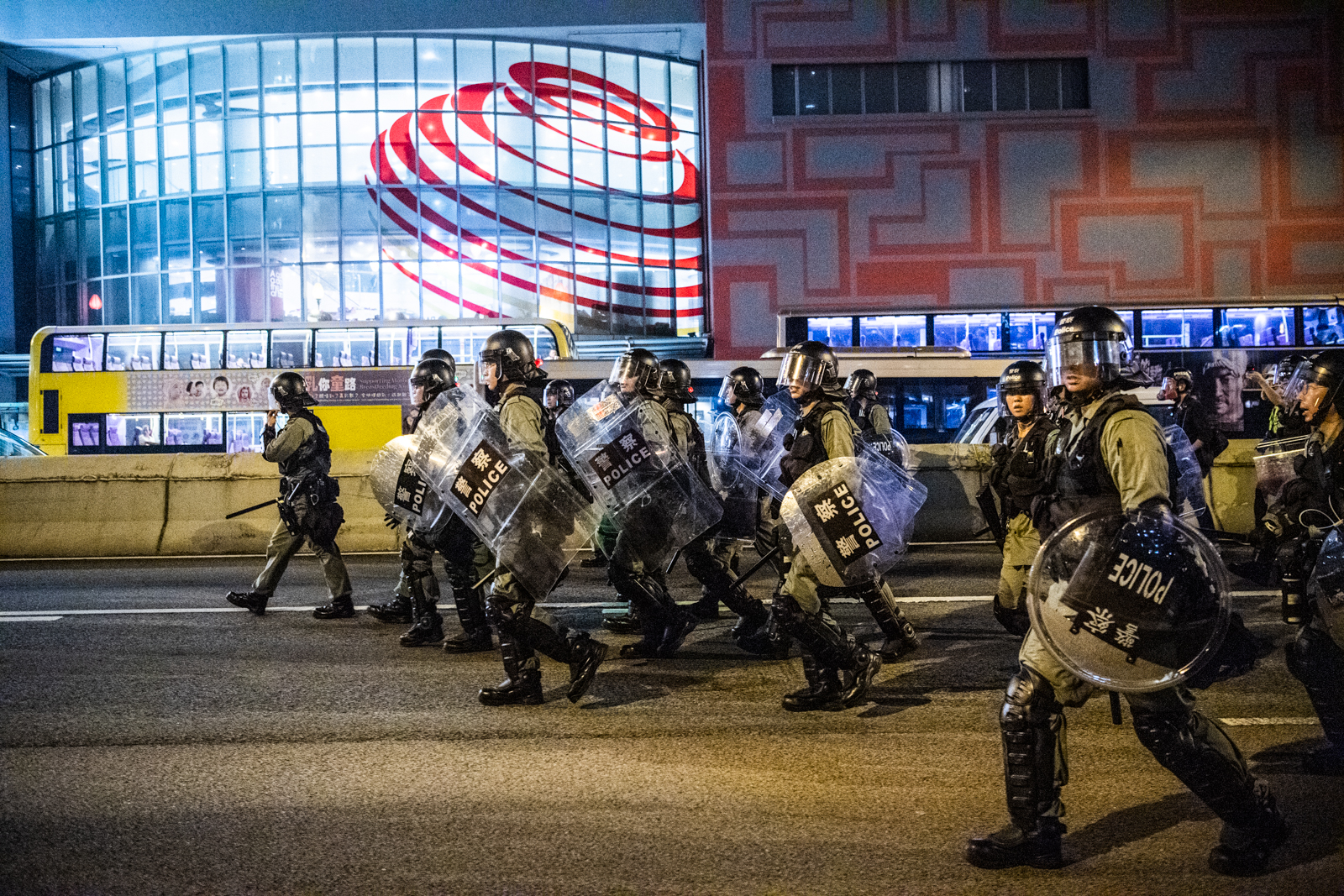
It’s expected that the leaderless protests, which are largely organized anonymously and online, will continue at least until October 1, Chinese National Day. Protests planned for next week alone include an animal lovers’ rally in response to reports that pets were exposed to tear gas, a #MeToo protest to condemn reports of police sexually assaulting women during or after their arrests, and another major peaceful march to mark the five-year-anniversary of the Chinese Communist Party’s decision against giving Hong Kong people universal suffrage.
A large number of Hong Kong’s citizens support the movement but don’t necessarily partake in the violent protests – as marked by the estimated 1.7 million who joined a march last Sunday. But many are now prepared to intensify the violence at all costs, especially as their demands continue to fall on deaf ears.
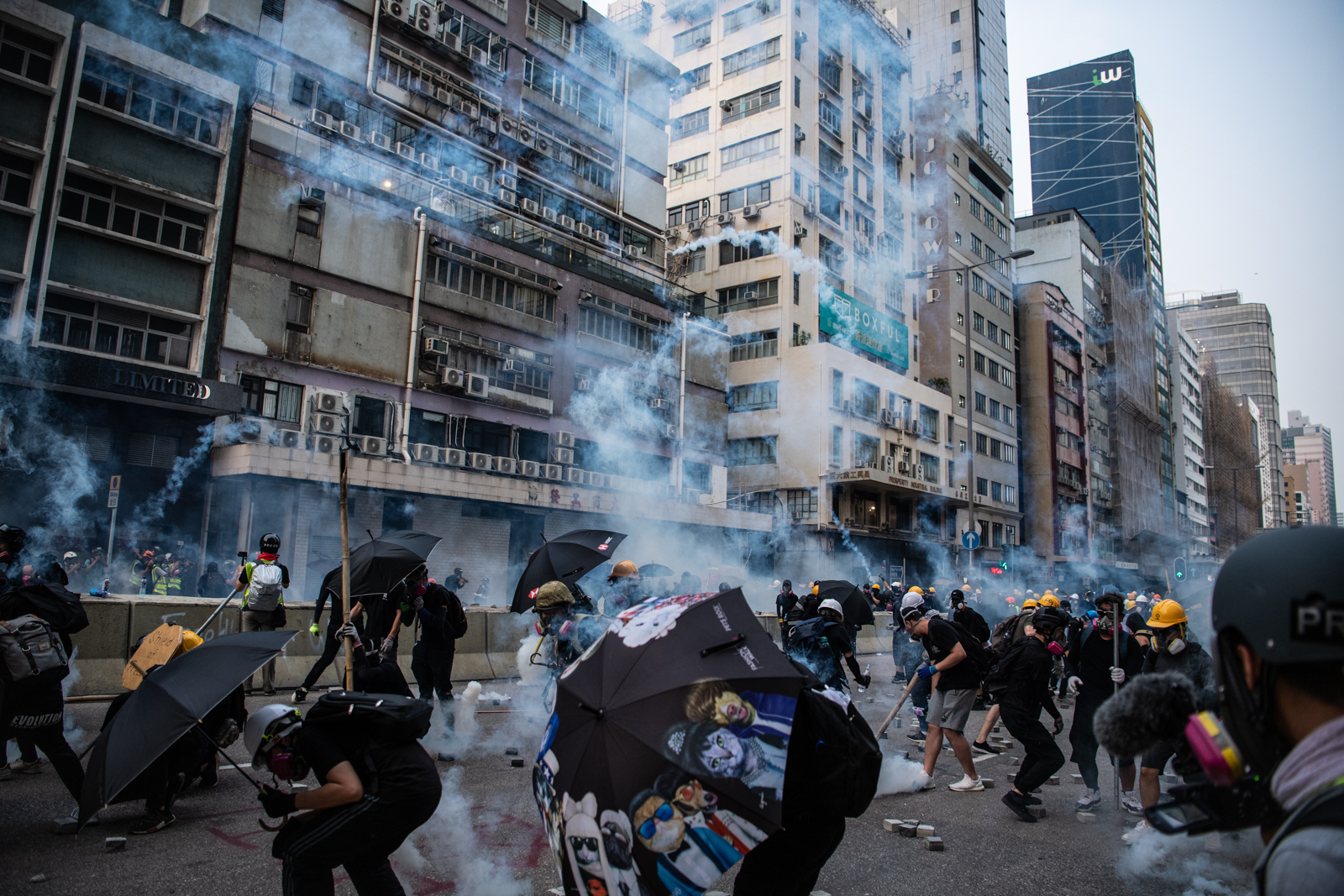
“Most protesters already understand that peaceful protests are not effective to [Hong Kong leader] Carrie Lam,” said Michael Leung, 26, an engineer.
“If the central government decides to send their troops to crack down on Hong Kong protesters, we are ready to sacrifice our interests, future, indeed lives,” he continued. “A lot of us are willing to die for Hong Kong. We cannot lose this war, otherwise, our freedom and welfare will be further eliminated by the Communist Party.”
Cover: A protester throws a tear gas canister back at the police in Kwun Tong on Aug. 24. (Photo: Laurel Chor for VICE News)
from VICE https://ift.tt/2ZwkCqg
via cheap web hosting
No comments:
Post a Comment